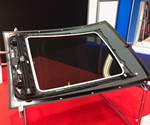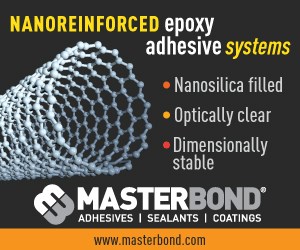Bio4self bio-based autocomposite wins JEC Innovation Award
The Bio4self consortium has developed a bio-based and easily recyclable composite material. It is suitable for mechanically demanding components in the automotive industry.
In the EU project Bio4self, an international consortium with the participation of the Fraunhofer ICT (Pfinztal, Germany) and the Institute of Textile Technology of the RWTH Aachen, has developed a self-reinforced composite of polyactide (PLA). PLA materials are based on lactic acids, which can be obtained from agricultural waste or specially grown raw materials such as sugar cane. In the project, scientists combined two different PLA types with different melting temperatures into a self-reinforced PLA composite (PLA SRPC) so that the higher melting PLA is embedded as the reinforcing fiber in the lower melting matrix.
The resulting material stiffness can compete with commercially available self-reinforced polypropylene (PP) composite materials. The composites are designed for high mechanical strength and rigidity as well as high temperature and hydrolytic stability. In addition, it is fully bio-based, easily recyclable, formable and industrially biodegradable. As the first prototypical applications of the material, the partners present a hybrid seating structure.
This project was awarded a JEC Innovation Award for sustainability, announced at the JEC Innovation Award ceremony on March 12, 2019.
This post is courtesy of the CompositesWorld and Springer lightweight.design magazine media partnership. For more information about Springer and lightweight.design, go to https://www.springerprofessional.de/en/link/12141380
Related Content
-
Multi-material steel/composite leaf spring targets lightweight, high-volume applications
Rassini International was challenged by Ford Motor Co. to take weight out of the F-150 pickup truck. Rassini responded with a multi-material steel/composite hybrid leaf spring system that can be manufactured at high volumes.
-
Jeep all-composite roof receivers achieve steel performance at low mass
Ultrashort carbon fiber/PPA replaces steel on rooftop brackets to hold Jeep soft tops, hardtops.
-
Materials & Processes: Fibers for composites
The structural properties of composite materials are derived primarily from the fiber reinforcement. Fiber types, their manufacture, their uses and the end-market applications in which they find most use are described.












